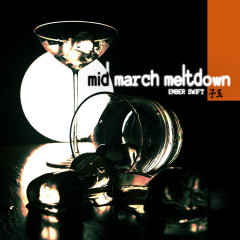Culture or Gender?
 It’s been awhile since I wrote for this blog. There’s reasons for that, but the primary one is this: I’ve spent the past eight months or so fantasizing about changing the blog name to: “Queer Girl Gets Divorced.” Seriously.
It’s been awhile since I wrote for this blog. There’s reasons for that, but the primary one is this: I’ve spent the past eight months or so fantasizing about changing the blog name to: “Queer Girl Gets Divorced.” Seriously.
It’s not that I don’t love the guy–in fact, that’s part of the problem. If I didn’t love him, divorce would be easy! It’s that our relationship has been so strained since the birth of baby #2 that I haven’t had almost anything nice to say about it, let alone write about it.
Recently, I sent this article off to a parenting magazine that I write for here in Beijing (see below). It gets translated into Chinese and I admit that I specifically wrote it so that I could present the article to him in his language. He can’t read my writing in English, so I thought this was a good opportunity to say things in a more formal way–in more perfect Chinese than I’m capable of, especially when I get even remotely emotional.
Some of you might think this would embarrass him, but it’s hard to embarrass someone who doesn’t feel he is doing anything that warrants embarrassment.
And, truth be told, I have few issues with his actions; this is more about inaction.
This topic has been the core of what I’ve been writing about all year. My poetry, blogs, journals, formal articles–they seem to be trying in vain to comb out the garbled knots in my head between motherhood and feminism. If I were a cartoon character, I’d have a bird’s nest for hair and a question mark hanging above me in my thought cloud.
That is, unless I’d already pulled all my hair out in frustration.
I don’t have the answers.
So, instead of offering some, (as I would have preferred to do as a writer), I offer the questions:
*****
[To be published in November 2014’s issue of Mami Magazine, Beijing]
Culture or Gender?
Since having children in China with my Chinese husband, I have been the recipient of a lot of advice about the way parenting roles should be divided in a Chinese household. Most of this advice has come from my mother-in-law, of course, but others have chimed in as well. Friends, neighbours, even the local fruit seller in our compound has shared her views.
A man’s (or a father’s) role is simply not primary, they all say. That’s just the way it is.
Of course, our household isn’t wholly Chinese. I’m the Canadian wife who comes with her own ideas about gender roles and/or parenting roles between mother and father.
A lone voice in a loud chorus.
“He’s a man. Men don’t do this kind of thing.”
This is a typical statement by my mother-in-law. Her own husband wasn’t domestic while their son (my husband) was young. They balanced opposing shift schedules at their respective 单位 [work unit], and so my father-in-law was forced to do some early childcare every morning until my mother-in-law came home from her shift and he then went to work. For the most part, though, it was my mother-in-law who kept house and did the majority of the parenting. No one questioned her precedence in this role, least of all her.
Even that sentence: that my father-in-law was “forced to do some child care” implies that it was unusual to expect this of a man at that time. Since becoming a parent myself, however, I’ve found that, sadly, it is still considered unusual today. Men are complimented and given extra credit when they perform any act of child care, whereas women are expected to be the caregivers without a second glance at the situation.
狗然, 这件事很烦人. [As one would expect, this is very annoying.]
Of course, in early infancy the mother is more in demand than the father, particularly if the mother is breastfeeding. But, is she more needed? Is she more suited to child care? Is this view imposed by our culture, or is it engrained into our gendered identities from birth?
I have not yet been able to find a clear answer to these questions. How much a conservative Chinese social system has reinforced this role or whether women are just more nurturing, in general, is hard to determine. It’s probably a little of both.
Yet, the answers are not as relevant as finding a solution to the problem.
“没什么问题,” my mother-in-law will say. “你们有我,我可以帮忙,你们已经很幸运了。” [There’s no problem. You have me. I can help. You are already very lucky.]
She’s right on the last point—we are lucky. Her help is golden. But, she’s wrong to think there is no problem with her son’s lower engagement and her daughter-in-law’s subsequent exhaustion. At least, in my eyes.
As a Western woman, I grew up expecting that my life partner—regardless of gender—would be equally engaged in both domestic and child care responsibilities. Yes, I am a feminist (because I believe men and women should be treated equally) and thus, the rigidity of gender roles in Chinese culture has been one of the hardest things for me to accept about living here. In fact, unlike Chinese food that I have long learned to 吃得惯 [get used to], this gender inequity is something I will always resist against. I never want to get used to it.
Here’s an example: When my daughter was born, my mother-in-law came to help us take care of the babies. Even though she earned more money than my father-in-law, she retired early and moved to Beijing without a second thought. It was her job as the 奶奶 [grandmother] to be here for us, she says, and she has been extremely helpful. Without her, I would have been lost.
No one even considered my father-in-law for this role.
There is no question that I owe my mother-in-law my extreme and heartfelt gratitude. But, shouldn’t that be something that we as two parents feel—gratitude? Should WE be grateful to her for helping US?
Her son doesn’t feel that way. To him, this is 应该的。那就是中国的文化,[as it should be, that’s the Chinese way] he says. He has the privilege of this position, of course. He’s a man. Without his mother, the job would fall entirely on my shoulders—the wife, the mother, the woman.
Am I the only one here who sees this as unfair?
Nevertheless, what has resulted is that she and I are the primary caregivers to our two children and this is not seen as remotely unusual here in China. In fact, it’s pretty normal. Only my Western friends and family shake their heads at my husband’s lack of engagement. When they witness how little assistance he offers while we’re overseas, they pity me. They see him as being lazy and inconsiderate but gently tiptoe around the topic for fear of offending our marriage or insulting the culture in which we live.
Recently, though, I have learned that men around the globe—including Canada—are often “off-the-hook” for these kinds of tasks. It’s not just China. They’re the first to complain about being tired if the baby wakes them at night for a feeding, for instance. They’re the first to pass the baby back to the mother if there’s a messy diaper that needs changing. They’re more likely to consider their own needs before that of their child’s, especially if they have a competent wife who they know is a good mother. Who’s keeping track of how much the child has eaten, whether they’ve been bathed, if their clothes are clean, how long ago their diaper was changed, etc.? A child’s needs are endless.
When do the mother’s needs get considered? More importantly, by whom?
On a recent phone call with my cousin in Canada, she said, “Yes, men are just selfish. In general. That’s just the way they are.”
My disappointment leaked into the receiver. I had nothing to counter with. Is this just something we have to swallow down, like a bitter pill? My throat clenched shut at the thought. There was a moment of silence between us before the conversation continued.
One of my good friends argues that I can counteract these gendered messages for the next generation by being vigilant about my son’s social education. I should teach him differently, she said, and be sure to remind him that his needs do not take precedence over his sister’s.
Yes, I said, I will certainly do this, but no matter what, he will see that his mother is more engaged in his rearing than his father. He will see his father’s comparative freedom. Won’t this imprint upon him a gender imbalance that I cannot control? And since we’re raising our children here in China, won’t the society further reinforce these messages that women are the childcare providers whereas men are entitled to life outside the family?
My mother-in-law shakes her head at these worries. 你想的太多, she tells me. 不用这么复杂。[You think too much. There’s no need to make it so complicated.]
She’s right. I can just resign myself to the fact that this is how it is and stop fighting it. I can just give up. Acceptance is certainly less complicated.
Or, I can challenge these stereotypes and continually remind my husband that he didn’t marry a Chinese woman. And then, when he’s finally home, I can hand him his youngest child—his son—when his diaper needs changing. I’ll be sure to add this sentence:
“对,做爸爸太不容易了, 我太理解。” [Yes, being a father is really hard. I so get it.]
Then I’ll smile warmly and go back to my writing.







